When it comes to Italian chefs, their unwavering admiration for their mothers’ cooking is a topic that always takes center stage. In our quest to uncover the secret behind this uncommon obsession, we had the pleasure of meeting two culinary maestros: Marco Violano, the executive chef of Four Seasons Hotel Jakarta, and Lorenzo Sollecito, the executive pastry chef, at Alto Restaurant situated on the 20th floor of Four Seasons Hotel Jakarta. Our conversation revealed that Italian mothers are not just providers of nourishment for their children; they also instill the values of exceptional service, heartfelt hospitality, and the most crucial ingredient of all: cooking with love.

What is the reason for Italian chefs’ obsession with their mother’s cooking?
Lorenzo: In Italy, we often refer it as “mammone,” which means they are deeply attached to their mothers. Spending time at home and sharing food is incredibly important to us. Naturally, in our families, it is usually the mother who takes care of these aspects. The dishes we bring from Italy or our childhood hold a special place in our hearts when everything is beautiful. For many chefs, their mother is the first real chef they learn from. Mothers teach something that few chefs do, which is to cook with love. When you cook with love for your family, the results are even better.
Marco: It is true that Italians are considered “mammone” and are deeply attached to their mothers. In most cases, the mother is primarily a housewife. Even if she works, the responsibility of taking care of the house falls on her. In our generation, fathers rarely took part in housework. The male figure was not involved in cooking. This pattern is similar in many cultures, such as Chinese and Indonesian. Coming together at the table is one of the most important moments of the day, and food plays a significant role.
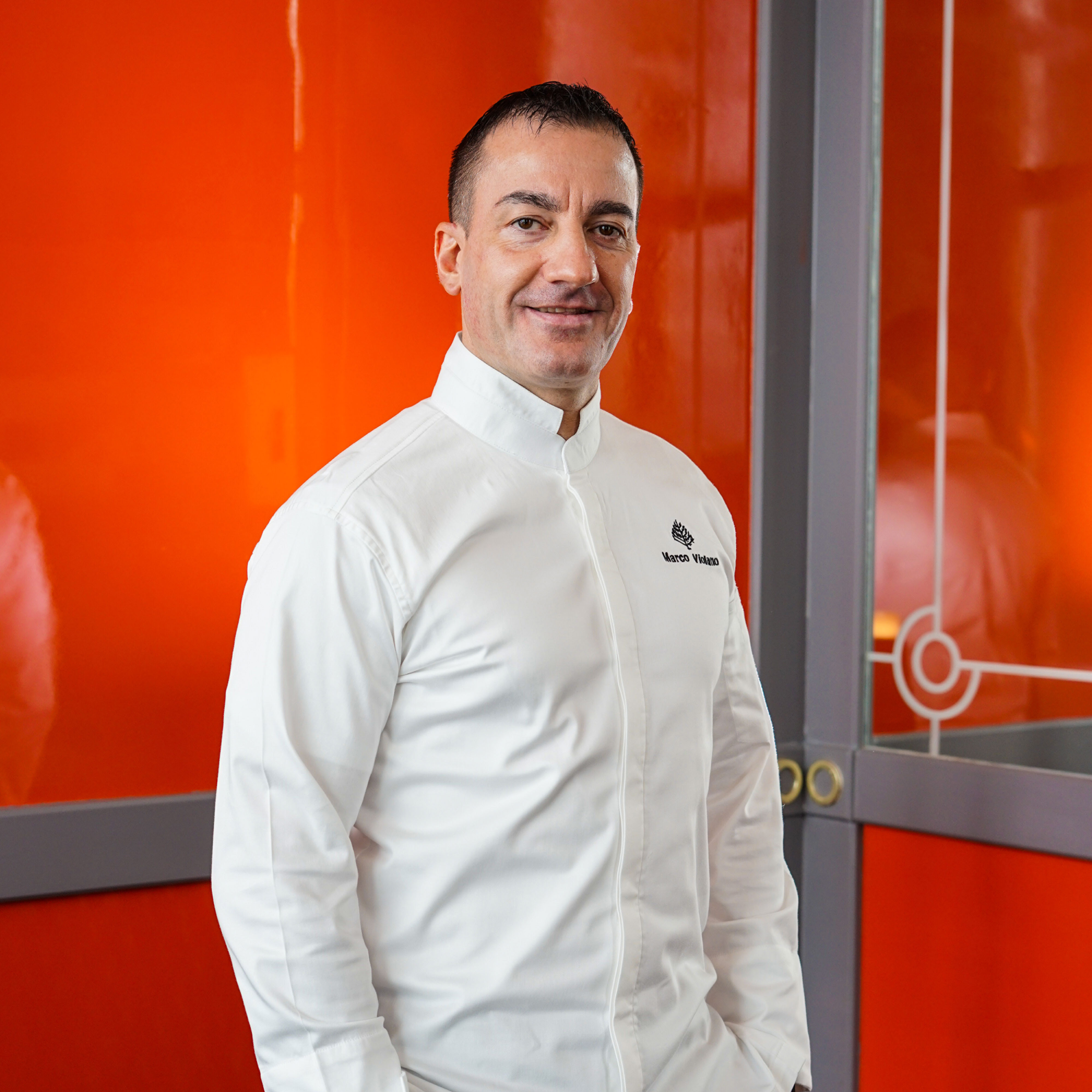
Did All Italians expect the mother to be a great cook?
Marco: If the food was not good or if my mother didn’t cook a satisfying meal, it would upset the entire family, especially my father. In my case, my father had high standards, and my mother wasn’t initially a good cook. However, my grandmother was an excellent cook! Over time, my mother had no other choice but to improve. She started putting effort into cooking, whereas previously, she had helped out at my grandmother’s shop. Eventually, my mother became one of the best chefs, at least in my eyes. My grandmother, from my mother’s side, was like a mentor. She didn’t want to lose face, if people are saying, “you didn’t teach your daughter how to cook!”
One of the things I learned most from her was making pasta. In Italy, pasta is as essential as rice in other cultures. In the past, there were no pasta machines, so my mother would make it by hand. Can you imagine how big her arms are (laugh)? So, as a child, you’re scared and had to behave, or else you might get a hefty slap!
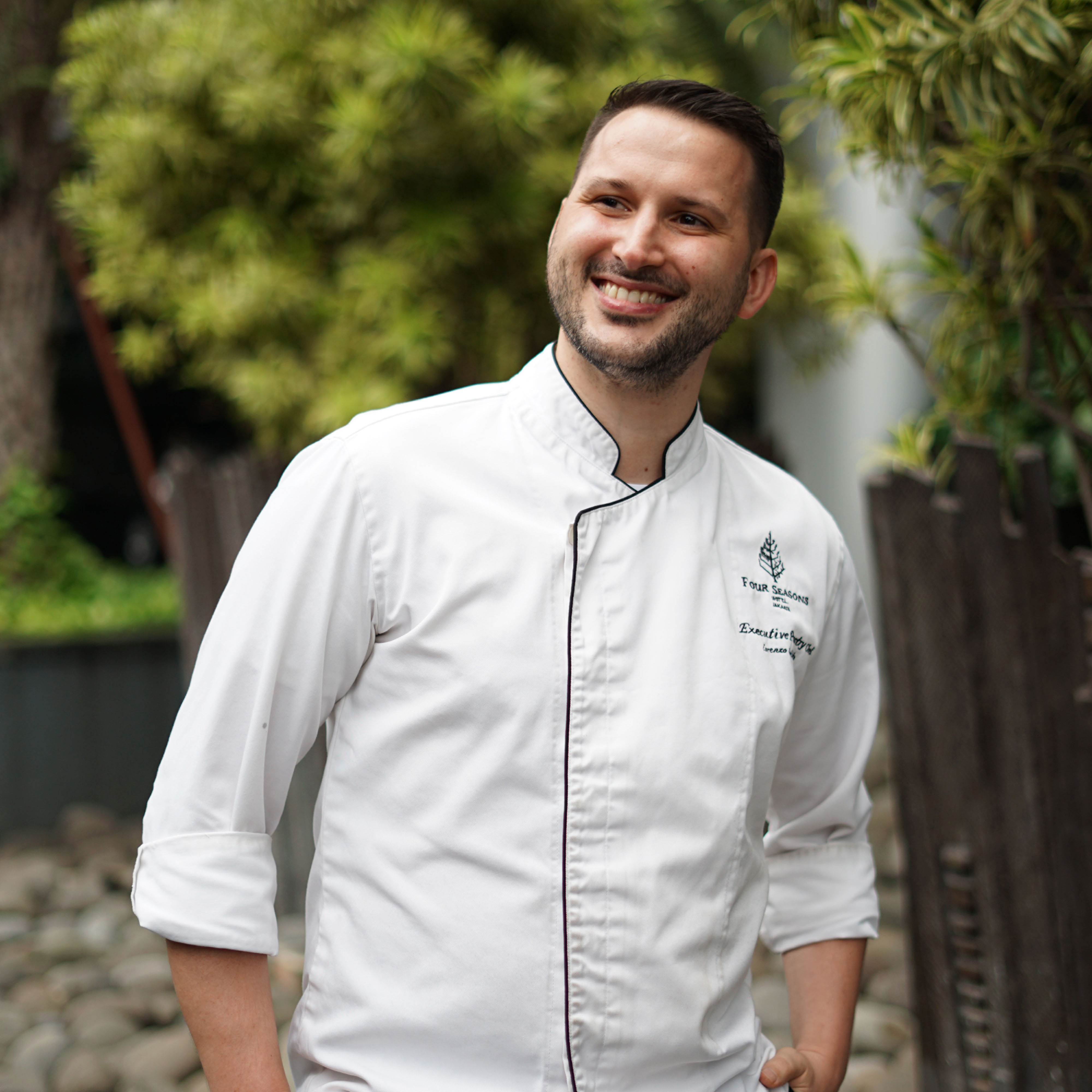
How about your mother’s cooking, Lorenzo?
Lorenzo: For me, Strudel, definitely Apple Strudel holds a special place. Coming from North Italy (Trentino), we have a strong influence from German and Austrian food culture. So, I would say that Apple Strudel was one of the top dishes my mother used to make. Additionally, since her family were farmers, whenever they had apples that couldn’t be sold, they would bring them home.
The dishes at Alto definitely don’t seem like mom’s cooking. How do you capture the spirit of your mother’s cooking at Alto?
Marco: Well, I don’t think we replicate our mother’s dishes exactly at Alto. What we do take from our mother’s cooking is mainly the flavours and ingredient selection. We are very particular about these aspects, especially Lorenzo, who is extremely picky about both the products and the kitchen side.
Lorenzo: Yes, very picky! (laughs)
Marco: Extremely picky! But we translate these elements into a modern context, especially nowadays, where visual presentation is also crucial. However, whenever we taste the food, it should remind us of the meals we had at home. That’s the essence we aim for—flavour, taste, and consistency that takes us back to our childhood when Mama was cooking.
Lorenzo: For me, pastry has to be slightly more elaborate. However, one thing I don’t do is Strudel because it would be quite disappointing for me, especially when compared to my mother’s, or my grandmother’s. What we bring here is primarily the love for the product and the love for pleasing our customers. Just like a mother who cooks for her husband and kids, we care for the customers. The mother is always the last one to eat, observing if everyone enjoyed their meal, even if she doesn’t talk. After many years, I understood, she was making sure everyone had something good. In a family situation or in our case, with our customers, there are expectations. If something is missing from the food, the mother knows, and likewise, we strive to meet our customers’ expectations.
We work a lot on telling a story because when you come to Alto, you expect something visually appealing. Italian pastries, not to say they are not pretty, are often simple and have a homely comfort food feel. What we do is bring out the history, story, and culture of Italian food. Italians excel at showcasing the history of our food culture. So, when I present a dessert, I think about how I can explain it to someone who may have grown up in Jakarta, for example. What is the story behind it? How was it consumed 60, 70, or even 100 years ago? That’s what I usually do when presenting a dessert.
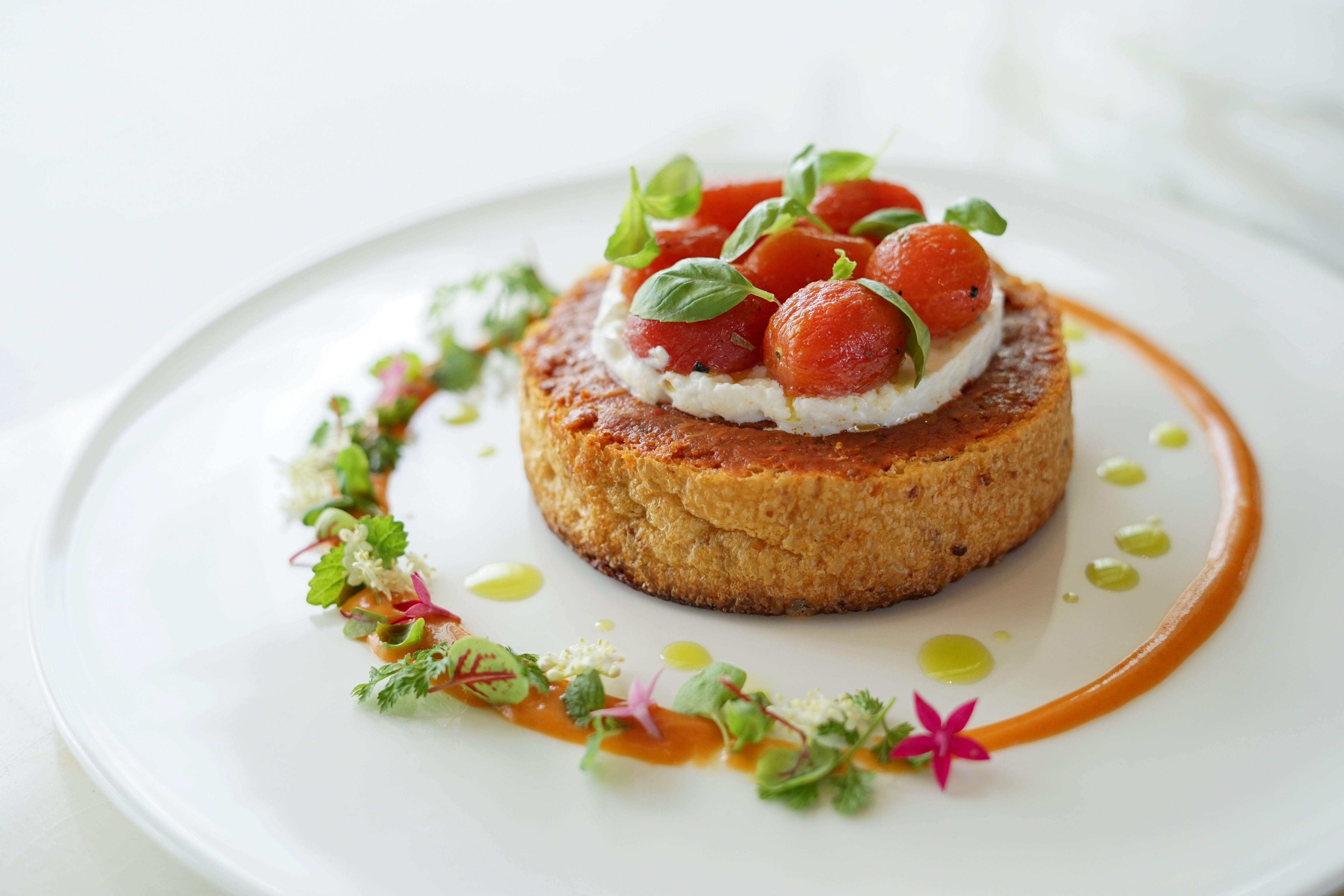
Please suggest some menus in Alto that truly captivate this “mom’s cooking” spirit!
Marco: Since day one I joined Four Seasons Jakarta, one menu item that has remained a staple and truly captures the “mom’s cooking” spirit is the Bruschettona (larger-sized Bruschetta). It’s a signature dish known worldwide! Additionally, our pasta selection deserves a highlight. As a pasta lover myself, I prefer it over main courses. I simply adore pasta, and you could serve me a thousand kilos of it! That’s why we take pride in our pasta. All of our pasta, except for spaghetti which needs to be dry, is homemade. From tagliatelle and tagliolini to spaghetti alla chitarra and ravioli, they are all made in-house. We don’t source them from elsewhere, which sets us apart from other Italian restaurants. I highly recommend you try our Ravioli Al Tartufo!
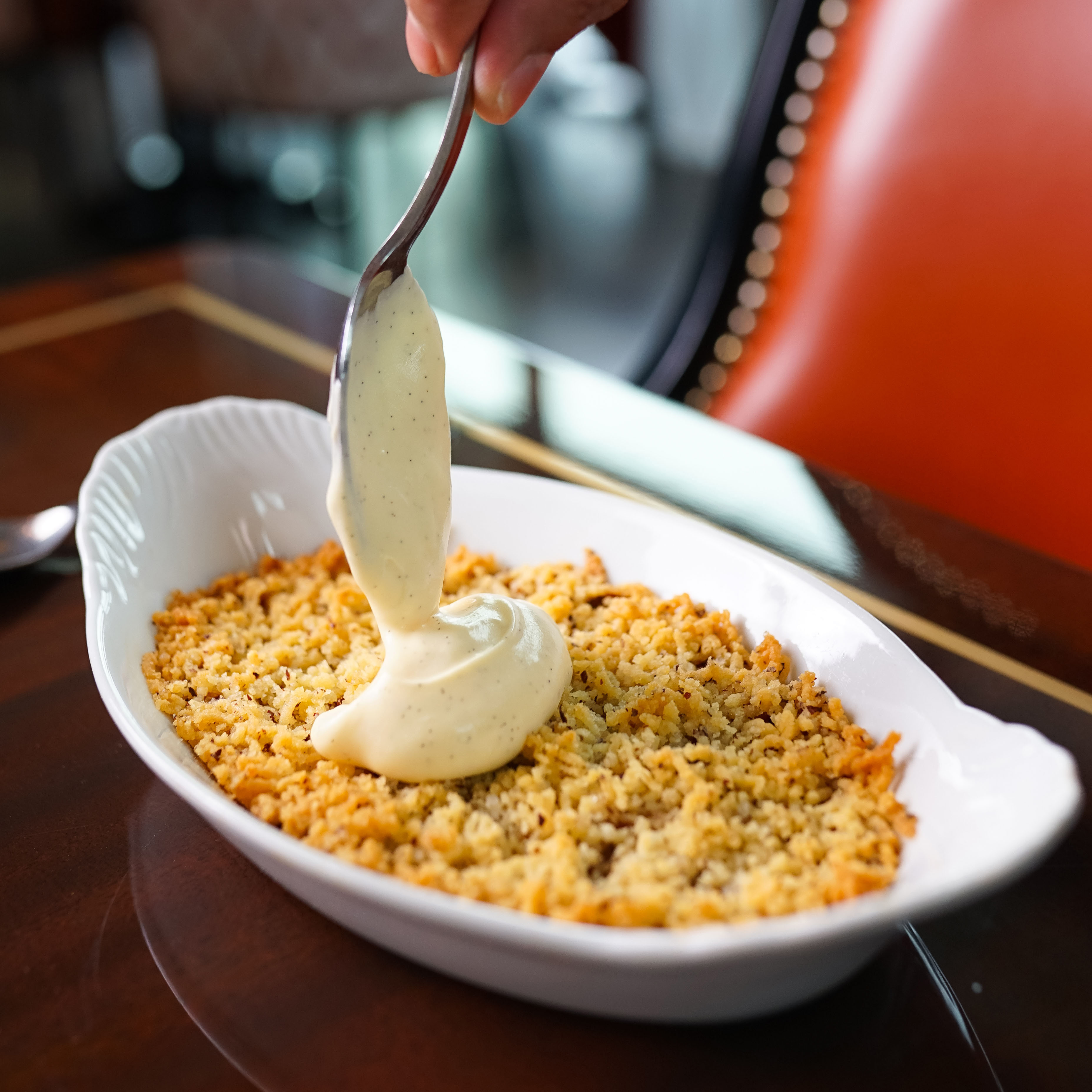
Lorenzo: If I were to visit Alto, being an apple enthusiast myself, I would undoubtedly order the Angelina dessert, which is named after my grandmother. It’s a simple yet exquisite dish, somewhat similar to strudel but with its unique twist. We slowly cook the apples with raisins, cinnamon, vanilla, spices, and prepare a delectable custard. Topped with a delightful crumble, the dessert is then baked to perfection. It’s a comforting and classic dish that brings back fond memories. To complement it, we serve a side of ice cream, making it a timeless and delightful combination.
I wanted to bring a menu item that closely resembles the dishes I grew up enjoying at home. I didn’t want to challenge my mother’s expertise, as she would surely outshine me and dampen my confidence. Instead, I sought to offer something that reflects the traditional flavours and brings back childhood memories, all presented in a comforting and nostalgic plate, for example, our Modern Bicerin: slow-baked chocolate pudding, spice-infused rum, caramelized hazelnuts, cocoa sponge, double milk gelato, espresso, chocolate sauce
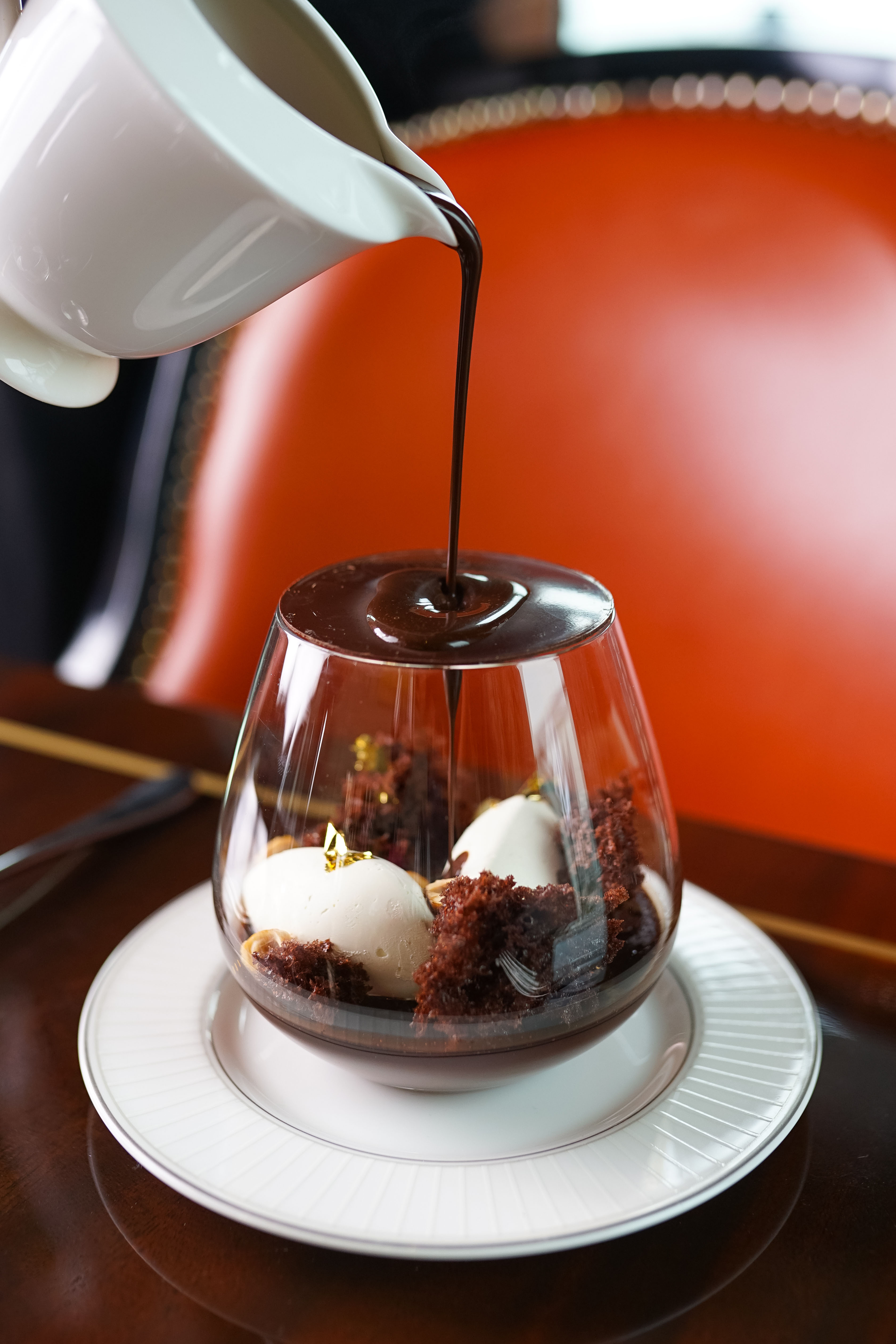
For more information, please visit https://www.fourseasons.com/jakarta/
